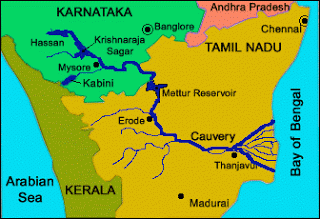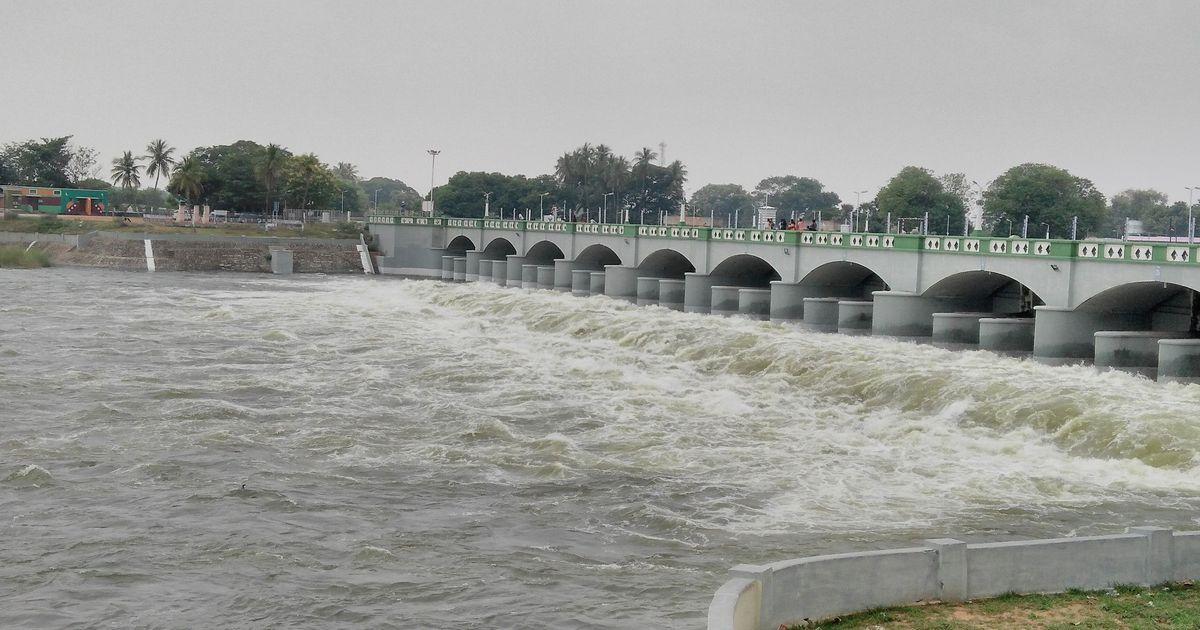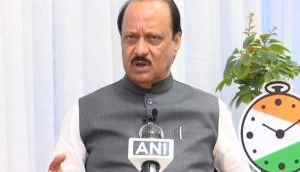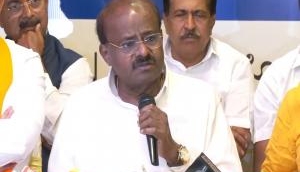
The river Cauvery is one of the main sources of water for irrigation in the agricultural lands of the Cauvery delta. Tamil Nadu has been dependent on water from the rivers in Kerala and Karnataka since long ago. Since then, the two state has been faces differences on sharing of water from the Cauvery river.
On Friday, the apex court has announced the most awaited and important verdict on the Cauvery water disputes that have come up as a goon for the Karnataka state. Here, are 5 major points of Kaveri water disputes that you should know.
1: There were two agreements signed during the period of British government ruling in the country. In the year 1892 and 1924, the two agreements between then Madras Presidency and the State of Mysore were signed. While the Kartanaka claimed that the walter allocated to the state from the river is insufficient. They also claimed the agreement was made in favor of Madras Presidency. And Tamil Nadu claimed that the irrigation land in the state has been increased and the entire region is dependent on the Cauvery river water.
2: The tussle between the two state continued over the years and got worsened in the year 1995 and 2002. Later, the Cauvery Fact Funding Committee was brought into existence to look into the issues and a final report was submitted by the committee in 1973.
3: Following this report, the discussions were held on the creation of a Cauvery Valley Authority. A monitoring committee and a Cauvery River Authority was set up by The Government of India with a participation from the Centre and both the states. ( Karnataka and Tamil Nadu)

4: Further this disputes went on its peak and filmstars also came forward and joined the protest. Karnataka's decision to build a dam across the Cauvery river led to worsening the situation of the state. After which, Tamil Nadu went to the court to set up a board under the Interstate River Water Disputes Act of 1956.
5. In 2007, The Government of India constituted 'board' under the direction of Supreme Court, came out with its final verdict in February. Under this verdict, Tamil Nadu was allowed around 419 billion cubic feet of water, Kartanaka 270 billion cubic feet and Kerala, 30 billion cubic feet. While Puducherry was given 7 billion cubic feet of water, report.
6: The Cauvery River Authority in 2012 directed Karnataka to release 9,000 cusecs of water to Tamil Nadu. However, Karnataka opposed the CRA directive after which Tamil Nadu approached the Supreme Court and won the order in its favor.
Also read: Cauvery water dispute judgement: No state can claim ownership of a river, says Supreme Court

7: The Supreme Court following the current disputes asked the Centre to set up a Cauvery Water Dispute Tribunal. Based on the Tribunal The Government of India notified final award in February 2013
8: In 2016, The apex court asked Karnataka to release 2000 cusecs of Cauvery water on per day basis to Tamil Nadu, till further orders. However, the state did not follow the Supreme Court directive, so on 9th of January, 2017, The Tamil Nadu Government sought a compensation of Rs 2, 480 crores from Kartanaka.
9: On 16 February 2018, The Supreme Court asked Karnataka to provide 177 TMC Cauvery water to Tamil Nadu. In its verdict, the court also added that Karnataka will get 14.75 TMC of additional water. The Supreme Court has reportedly said no one state can claim ownership of a river while announcing its verdict into the Cauvery river water dispute.
The state has called the Supreme Court's judgment a "balanced verdict." They also said they are very happy with the allocation given to the state by Supreme Court.
Also read: PNB Fraud case: Priyanka Chopra, Sidharth Malhotra to take legal action against Nirav Modi
First published: 16 February 2018, 12:59 IST






![BJP's Kapil Mishra recreates Shankar Mahadevan’s ‘Breathless’ song to highlight Delhi pollution [WATCH] BJP's Kapil Mishra recreates Shankar Mahadevan’s ‘Breathless’ song to highlight Delhi pollution [WATCH]](https://images.catchnews.com/upload/2022/11/03/kapil-mishra_240884_300x172.png)

![Anupam Kher shares pictures of his toned body on 67th birthday [MUST SEE] Anupam Kher shares pictures of his toned body on 67th birthday [MUST SEE]](https://images.catchnews.com/upload/2022/03/07/Anupam_kher_231145_300x172.jpg)






